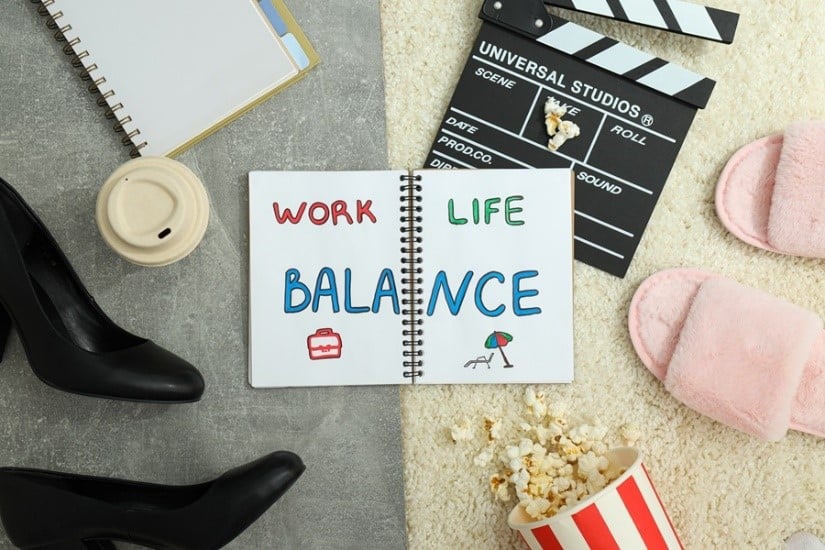The way we work has fundamentally changed—and so has the way we live. Since the rise of hybrid working models, the traditional boundaries between personal and professional life have blurred, creating both new freedoms and new challenges. As we settle into 2025, it’s becoming clear that hybrid work is more than just a trend—it’s a shift that’s reshaping mental health, productivity, and how we define success.
While many employees have embraced the flexibility, the impact of hybrid work on well-being and performance depends largely on how organisations and individuals adapt. Here’s a closer look at how the hybrid revolution is redefining our work-life balance.
The Mental Health Upside of Flexibility
One of the most celebrated benefits of hybrid work is the potential for improved mental health. By allowing employees to work from home part of the time, hybrid models offer greater autonomy over schedules, reduced commuting stress, and more time for personal responsibilities and self-care.
Surveys conducted throughout the UK indicate that employees with flexible work arrangements report higher job satisfaction and lower burnout rates. Parents, in particular, have expressed relief at being able to better coordinate their work and family obligations.
That said, flexibility doesn’t automatically lead to well-being. Employees who lack a dedicated workspace at home or who work extended hours without clear boundaries can experience increased stress and fatigue. To combat this, many companies are providing wellness resources, mental health days, and stipends for home office upgrades.
For hybrid work to truly support mental health, the key lies in balance—having the freedom to choose when and where to work, while still maintaining routines, boundaries, and social connections.
Productivity in the Hybrid Era: Rethinking Performance
The old-school notion that productivity only happens at the office has been debunked. Studies show that many employees are more focused and efficient when working from home—free from office noise, interruptions, and unnecessary meetings.
Hybrid models have encouraged organisations to shift from time-based management to outcome-based evaluation. Rather than monitoring hours, businesses are assessing performance based on goals, deliverables, and impact. This empowers employees to work at their most productive hours and fosters a results-driven culture.
However, productivity gains are not universal. Some teams struggle with coordination, communication gaps, or a lack of clarity around expectations. In these cases, technology plays a crucial role. Tools like project management software, video conferencing platforms, and virtual collaboration hubs are now essential for success.
Employers also need to be intentional about in-office time. When team members do come in, it’s vital to create value—whether through brainstorming sessions, one-on-one coaching, or team-building activities. A hybrid workplace isn’t just a compromise—it should be a strategic advantage.
The Importance of Connection and Culture
One of the biggest risks of hybrid work is social isolation. With fewer watercooler chats and face-to-face interactions, some employees feel disconnected from their colleagues and company culture. This can impact both morale and retention.
That’s why leading organisations are investing in culture-driven hybrid strategies. From regular team check-ins and social events to clear communication norms and inclusive leadership practices, there’s a strong emphasis on maintaining connection.
HR departments are also prioritising employee listening—using pulse surveys, anonymous feedback tools, and wellness platforms to understand how hybrid work is impacting teams. By acting on this feedback, companies can build a culture that thrives, no matter where people are working from.
It’s also important for employees to manage their own boundaries and digital habits. With the rise of screen fatigue and 24/7 notifications, intentional downtime has become a wellness essential. Whether it’s taking midday walks, setting app limits, or exploring hobbies, self-regulation supports both mental health and sustained productivity.
And while browsing during downtime, be mindful of content quality. For instance, light reading like a fruit party slot guide from Betpanda may be a fun distraction, but always ensure screen time doesn’t compromise focus, rest, or well-being.
Conclusion
Hybrid work is not a one-size-fits-all solution, but when designed thoughtfully, it offers a more human, balanced way of working. It challenges outdated norms and opens the door to healthier, more productive lifestyles.
As we look ahead, the conversation should shift from whether hybrid work “works,” to how we can make it work better—for mental health, performance, and meaningful connection.
In the hybrid age, success isn’t about where you work—it’s about how well your work supports your life.
